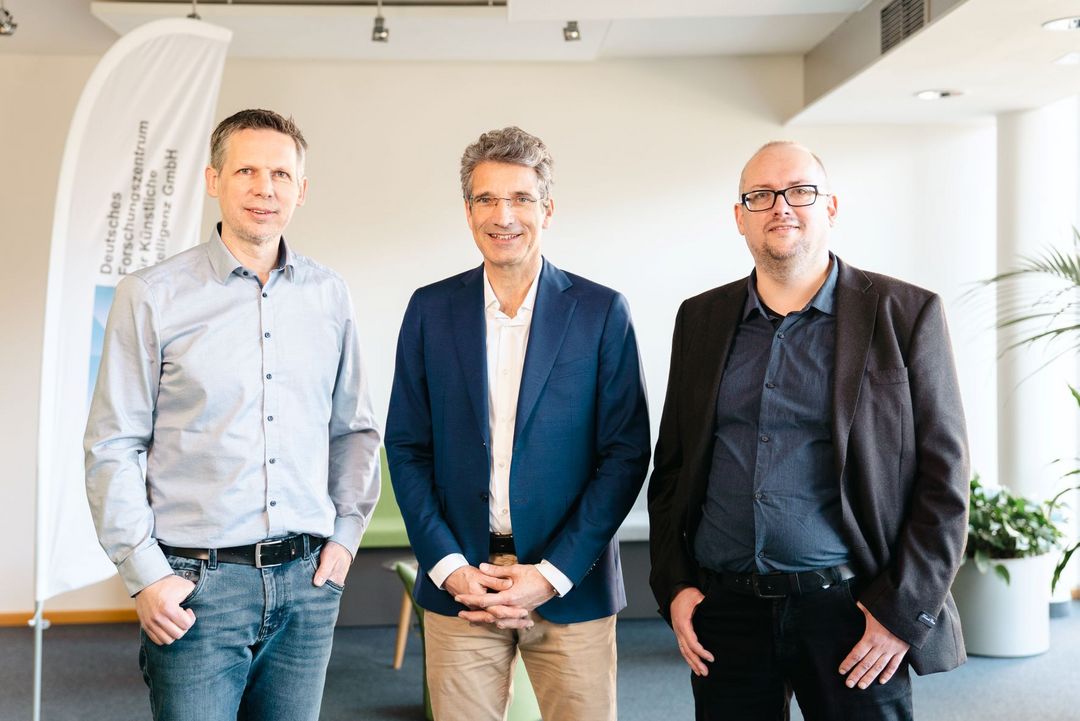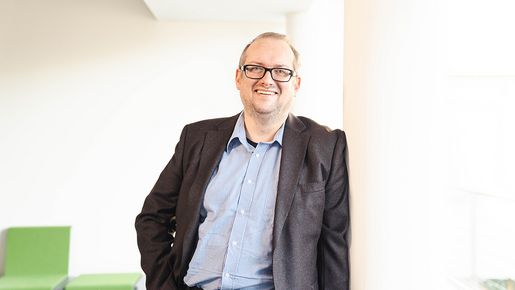Oliver Zielinski has headed the newly established research department Marine Perception of DFKI Niedersachsen in Oldenburg since 2019. The division focuses on the research and development of intelligent sensors and systems that can be used in the sea or in other aquatic environments. An important focus of his work is AI for sustainability. He promoted this topic at DFKI across sites and research areas in the DFKI4planet initiative and with his own event formats. This bundling of experience and expert knowledge has brought about ecological effects in concrete projects, which are used, for example, in the context of combating plastic waste in the world's oceans.
Prof. Oliver Zielinski: "The time at DFKI was impressive and enriching, formative and stimulating for me. I am grateful that DFKI opened up new dimensions for my research work and I was able to work with a highly motivated team in Oldenburg. Now I am looking forward to the new tasks. I am happy to take on responsibility for the IOW institute and I will also benefit in my new position from the experience gained at DFKI Niedersachsen and the culture of cooperation practiced in the DFKI network. I will also not lose sight of the concrete added values that AI applications open up in maritime research, so that we can maintain and, in perspective, also improve marine welfare."
Prof. Zielinski studied physics and computer science at the Carl von Ossietzky University Oldenburg from 1991 to 1996, specializing in the modeling of complex systems, marine physics and optical remote sensing. He earned his doctorate at the Institute of Physics at the University of Oldenburg. Since 2011, he has been Professor of Marine Sensor Systems at the Institute for Chemistry and Biology of the Marine Environment (ICBM) at the University of Oldenburg and heads the working group of the same name at the Wilhelmshaven site. Zielinski has been involved in numerous expeditions with the research vessels “Meteor”, “Maria S. Merian”, “Sonne” and various smaller and medium-sized ships. Since 2017, he has also headed the Center for Marine Sensors (ZfMarS) at the Wilhelmshaven site.
DFKI CEO Prof. Dr. Antonio Krüger: "I am personally very happy for Oliver Zielinski. I am sure that he will be able to sustainably meet all the challenges and I congratulate him on this new position of Institute Director and the creative opportunities it brings. As DFKI CEO, I am reluctant to let him go, but I am sure that we will continue to work together on numerous research projects. The topic of maritime AI will continue to be at home at DFKI, and I am glad that Dr. Frederic Stahl will now continue and further develop this work."
Dr. Frederic Stahl, who has already been responsible for project management at DFKI since 2019 and has played a key role in establishing the research department, will take over as acting head. Dr Frederic Stahl: "We will continue to develop AI solutions for environmental applications in the Marine Perception research department and thus make our contribution to achieving the United Nations' sustainability goals. A good example of this is our DFKI project PlasticObs+. Here, we intelligently evaluate remote sensing data from spectral and imaging sensors so that existing knowledge gaps regarding the sources, distribution paths and accumulation areas of plastic waste are closed, and regular and standardized monitoring becomes possible. In other words, we can trace paths of causation. These selective measures have a great impact and lead to clear improvements."
Dr. Stahl studied bioinformatics at the Weihenstephan University of Applied Sciences. He spent over ten years of his scientific career in England, where he also received his PhD in computer science from the University of Portsmouth and was an associate professor at the University of Reading. His PhD thesis focused on parallel data mining algorithms for scaling data mining workflows on very large datasets. In 2022, he was appointed DFKI Research Fellow.
About the Leibniz Institute for Baltic Sea Research Warnemünde (IOW)
The Leibniz Institute for Baltic Sea Research Warnemünde (IOW) is a non-university marine research institute. In its four departments, the basic disciplines of marine research are represented. Its research programme is directed towards coastal and marginal seas with a special focus on the Baltic Sea ecosystem. In addition to its research activities, the IOW pursues a transfer concept and operates research infrastructures for the scientific community. The IOW is a member of the Leibniz Association (WGL). Its institutional budget is jointly funded by the Federal Government and the Länder. The IOW is a foundation under public law.


